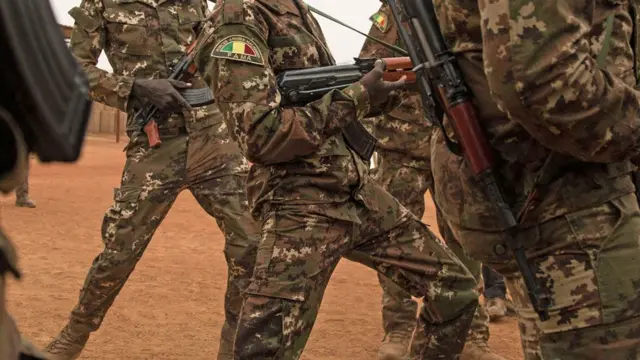
Mali’s armed forces have claimed a significant string of victories against jihadist groups across multiple regions, including the capture of a top Islamic State commander and the repulsion of coordinated attacks by al-Qaeda-linked militants.
On Tuesday, July 1, the Malian Armed Forces (FAMa), supported by the Africa Corps—a Russian contingent officially integrated into Mali’s defense strategy—repelled simultaneous assaults by the Group for the Support of Islam and Muslims (JNIM) in seven key locations: Niono, Molodo, Sandaré, Gogui, Nioro du Sahel, Kayes, and Diboli.
In Niono, a strategic town in the Ségou region, approximately 100 jihadist fighters launched an attack in a bid to overrun Malian positions. According to the army’s general staff, more than 80 attackers were neutralized, and several weapons were seized.
JNIM acknowledged launching the operation, claiming to have inflicted heavy casualties and captured equipment, though these claims remain unverified.
Diboli, located less than two kilometers from Senegal’s Kidira border post, saw one of the most audacious attacks to date, with gunfire riddling administrative buildings and security posts.
This marked the first direct strike so close to Senegalese territory, despite the establishment of joint Mali-Senegal patrols.
Amid these escalating confrontations, Mali’s security forces announced the arrest of Abraham Boubacar, alias “Oubel,” a senior leader in the Islamic State in the Sahel.
Captured in Gao on June 29 along with ten associates, Boubacar was reportedly the head of the group’s Terrorist Action Group operating in the Tessit region near the borders with Niger and Burkina Faso.
Less than 24 hours later, another ISIS figure, “Abou Dahdah,” described as an explosives expert and ideologue, was killed near Ménaka.
Military sources and regional observers say these developments signal increasing pressure on jihadist leadership structures.
However, the scale and coordination of the recent attacks underscore the persistent and adaptive threat posed by these armed groups.
While Malian officials praised the rapid response and tactical successes, analysts caution that such gains remain precarious.
“Each battlefield victory must be translated into long-term political and security stability,” one local security expert warned.
As Mali continues its war of attrition against insurgent forces, the challenge now lies not only in military defense but in consolidating peace and governance in the country’s most vulnerable regions.



